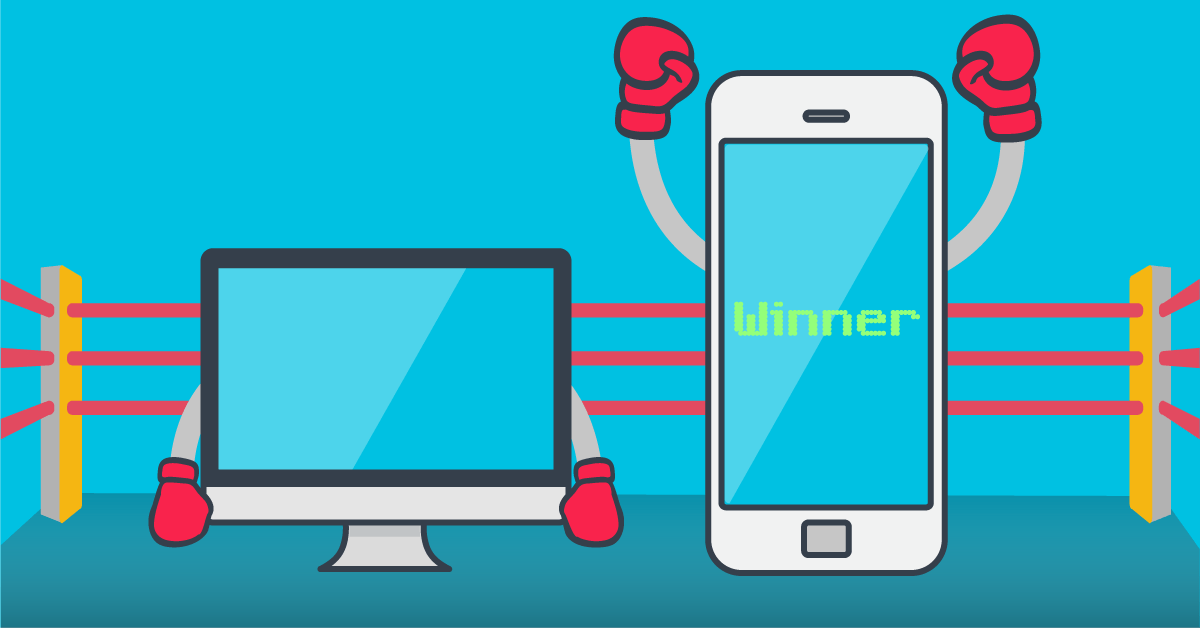
In 2016, we surpassed what is known as the “mobile moment”, a time when mobile searches exceeded those of computer searches.
For all that, do you have to favor mobile over the old computer when designing and launching a website?
Not really, because they are different and complementary experiences. Indeed, many studies show that if the mobile is more popular, users will favor the comfort of the desktop to perform certain actions. The choice of a device, therefore, depends more on the intent sought by the user, which will influence its behavior on the site.
Understanding, tracking and differentiating between traffic, conversions, interactions, and engagement on the phone and desktop separately will enable you to build both a mobile and a desktop strategy to create the best experience for each of them.
Here is a list of points that show how the user adopts a different behavior in mobile and on computer.
Time and type of device
Determining when your target audience is the most active and therefore likely to convert will help you better plan your actions. A joint study by the Financial Times and Microsoft shows that the use of mobile peaks between 6 am and 9 am and the evening from 18h to 23h. Want to post new content, send an e-newsletter, push an offer? This is the perfect time when you want to reach mobile users.
During the day, desktop computers represent the majority of connections (between 9 am and 6 pm). These users spend three times more time on the site that mobile users and visit more pages.
Different actions depending on the device used
We have analyzed the interactions of several sites of our customers depending on whether the user is on mobile and desktop and here is what we remember. Mobile users will tend to look for quicker, utilitarian actions: a customer service call button, find a store near you, and more.
While more “complex” tasks arrive in the top 10 actions performed in the desktop: fill out a warranty form, connect to the history of his account.
This is the point: Users who want to get advanced information or perform tedious online tasks will prefer the convenience of a computer while the mobile user will use his device with a specific intent.
In mobile: research focused on immediate answers
Mobile users use interrogative queries more frequently than desktop users: when who, what, how etc. More users will also be asking for assistance (online chat, calling a call center, making a reservation by phone).
The location also makes a big difference. Many studies show that queries contain location information such as city, state, postal code, and so on. Mostly come from mobile users.
E-commerce: a better conversion rate on desktop
While the use of mobile is increasing, the computer is still the preferred way to make purchases. The reality is that the phone and tablet are more used to learn about products but the user prefers to turn to the desktop to complete his transaction. The reason: the purchase is done in a more relaxed environment, and again it favors the comfort of a larger screen. The good news: on the desktop, the number of products in the basket is much higher than in mobile.
As for mobile purchases, they are most often reserved for small amounts and leisure such as gift cards, tickets for events etc.
Capture the user’s attention: a bigger challenge in mobile
Less time spent on the site, higher bounce rate in mobile than on the computer. Nevertheless, for 9 people out of 10, all devices combined, the content is important. However, the mobile user has a lower degree of attention than desktop users. It tends to scan the information rather than actually read it. This is why we must provide visual elements (highlighted numbers, video, less information overload etc.) to hang it.
These different elements show us that consumer expectations change according to the device used. Finally, what is important to understand is that the choice of one device over another is based on the context of use. Your user is in the street and looking for a store address: he is on his smartphone and you know he needs an answer quickly and for a short time. Your user wants to pay the bill online, so he or she is likely to have it conveniently at his desk with his documents at hand, and you can offer him a more complete and detailed experience.
At Elitech Systems, we strive to support our customers in understanding and analyzing their audience by the device and then adapting your strategy to meet their needs, and to enable you to provide the right answers on good devices.

Comments are closed.